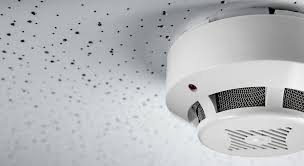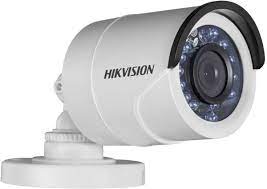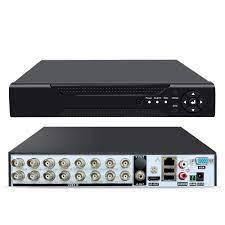Smoke Detector Alarm: Ensuring Safety and Peace of Mind
A smoke detector alarm is a crucial component of any home or commercial building’s safety system. Its primary function is to detect the presence of smoke, which could indicate a fire hazard, and alert occupants to evacuate the premises promptly. These devices play a vital role in saving lives and preventing property damage by providing early warning in the event of a fire.
There are various types of smoke detector alarms available on the market, including ionization smoke alarms, photoelectric smoke alarms, and dual-sensor smoke alarms. Each type operates differently but serves the same purpose of detecting smoke particles in the air.
Ionization smoke alarms contain a small amount of radioactive material that ionizes the air inside the alarm chamber. When smoke enters the chamber, it disrupts the ionization process, triggering the alarm to sound. These types of alarms are best at detecting fast-flaming fires.
Photoelectric smoke alarms use a light sensor that detects scattered or reflected light from smoke particles. When smoke enters the chamber and interrupts the light beam, the alarm is activated. These alarms are more effective at detecting slow-smoldering fires.
Dual-sensor smoke alarms combine both ionization and photoelectric technologies to provide comprehensive fire detection capabilities. By using both detection methods, these alarms offer increased sensitivity to a wide range of fire types.
It is essential to install smoke detector alarms in key areas throughout a building, such as bedrooms, hallways, kitchens, and living rooms. Regular maintenance, including testing batteries and cleaning sensors, is also crucial to ensure these devices function properly when needed.
In conclusion, a smoke detector alarm is an indispensable tool for safeguarding lives and property against the devastating effects of fires. By investing in high-quality smoke detectors and ensuring their proper installation and maintenance, individuals can enjoy greater peace of mind knowing that they have an early warning system in place in case of emergencies.
Understanding Smoke Detectors: Types, Functions, and Troubleshooting Common Issues
- What are the 4 types of smoke alarm?
- What are the 3 types of smoke detectors?
- How do smoke detectors alarms work?
- What are the three types of smoke detectors?
- What is a smoke detector used for?
- How do I stop my smoke detector from beeping?
- Why does my smoke detector go off for no reason?
What are the 4 types of smoke alarm?
There are four main types of smoke alarms commonly used for fire detection: ionization smoke alarms, photoelectric smoke alarms, dual-sensor smoke alarms, and interconnected smoke alarms. Ionization smoke alarms are effective at detecting fast-flaming fires, while photoelectric smoke alarms excel at detecting slow-smoldering fires. Dual-sensor smoke alarms combine both ionization and photoelectric technologies for comprehensive fire detection capabilities. Interconnected smoke alarms are designed to communicate with each other so that when one alarm detects smoke, all interconnected alarms in the building sound simultaneously, providing early warning to occupants throughout the premises. Each type of smoke alarm has its unique strengths and is essential for ensuring comprehensive fire safety in residential and commercial settings.
What are the 3 types of smoke detectors?
There are three main types of smoke detectors commonly used: ionization smoke alarms, photoelectric smoke alarms, and dual-sensor smoke alarms. Ionization smoke alarms are effective at detecting fast-flaming fires, while photoelectric smoke alarms are better suited for detecting slow-smoldering fires. Dual-sensor smoke alarms combine both ionization and photoelectric technologies to provide comprehensive fire detection capabilities, offering increased sensitivity to a wide range of fire types. Each type has its strengths and is designed to provide early warning in the event of a fire, ensuring the safety of occupants and minimizing property damage.
How do smoke detectors alarms work?
Smoke detector alarms work by continuously monitoring the air for the presence of smoke particles that may indicate a fire. There are different types of smoke detectors, including ionization, photoelectric, and dual-sensor alarms, each utilizing distinct technologies to detect smoke. Ionization alarms contain a small amount of radioactive material that ionizes the air inside the alarm chamber. When smoke enters the chamber and disrupts the ionization process, the alarm is triggered. Photoelectric alarms use a light sensor to detect scattered or reflected light from smoke particles, activating the alarm when smoke interrupts the light beam. Dual-sensor alarms combine both ionization and photoelectric technologies for enhanced fire detection capabilities. Once smoke is detected, the alarm sounds to alert occupants and prompt evacuation, providing early warning in case of a fire emergency.
What are the three types of smoke detectors?
There are three main types of smoke detectors commonly used: ionization smoke alarms, photoelectric smoke alarms, and dual-sensor smoke alarms. Ionization smoke alarms are effective at detecting fast-flaming fires, while photoelectric smoke alarms excel at detecting slow-smoldering fires. Dual-sensor smoke alarms combine both ionization and photoelectric technologies to provide comprehensive fire detection capabilities, offering increased sensitivity to a wide range of fire types. Each type of smoke detector has its own strengths and is designed to provide early warning in the event of a fire, ensuring the safety of occupants and protecting property.
What is a smoke detector used for?
A smoke detector is a critical safety device used to detect the presence of smoke in the air, signaling a potential fire hazard. By promptly sensing smoke particles, a smoke detector alarm provides early warning to occupants of a building, allowing them to evacuate safely and swiftly in the event of a fire. This essential piece of equipment plays a crucial role in saving lives and minimizing property damage by alerting individuals to potential dangers before they escalate. Installing smoke detectors in key areas throughout homes and commercial buildings is vital for ensuring the safety and well-being of occupants.
How do I stop my smoke detector from beeping?
One common reason for a smoke detector alarm beeping is a low battery. To stop the beeping, you can replace the old battery with a new one. It is recommended to use high-quality batteries to ensure the proper functioning of the smoke detector. Additionally, dust and debris accumulation can also trigger false alarms. Regularly cleaning the smoke detector with a soft brush or vacuum cleaner can help prevent unwanted beeping. If the beeping persists after replacing the battery and cleaning the unit, it may indicate a more serious issue that requires professional inspection and maintenance.
Why does my smoke detector go off for no reason?
One common reason why a smoke detector may go off for no apparent reason is due to environmental factors such as dust, humidity, or steam. Dust accumulation inside the smoke detector’s sensors can trigger false alarms, as can high levels of humidity or steam from activities like cooking or showering. Additionally, insects or pests nesting inside the detector can also interfere with its proper functioning. Regular maintenance, including cleaning the detectors and ensuring proper placement away from areas prone to these factors, can help reduce the likelihood of false alarms and ensure the smoke detector operates effectively when a real emergency occurs.



